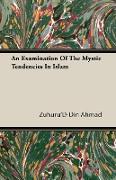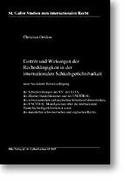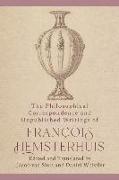An Examination of the Mystic Tendencies in Islam
BücherAngebote / Angebote:
AN EXAMINATION Vff THE - MYSTIC TENDENCIES 4N ISLAM IN THE LIGHT OP THE QURAN AND TRADITIONS BY M. M. ZUHURUD-DiN AHMAD, M. A., LL. B., Professor of Logic and Philosophy at the Ismail College, Andheri Bombay. Teacher Post-Graduates Classes at the Bombay University. Sometime University Lecturer at Muslim University, Aligarh, and at Islamia College, Calcutta. Bombay, Printed by Hosang T. Anklesaria at the Fort Printing Press, No. 1, Parsi Bazar Street, Fort, Bombay, and published by Prof. M. M. 5 uhur ud-din Ahmad, Pali Road, Bandra. Dedicated TO Mr. AHMADBHOY FAZALBHOY KARIMBHOY, B. A. CANTAB., BAR-AT-LAW a scholar and patron of scholarship, in token of his generous help, ivithout which the book could not have leen published. PEEFACE. The aim of this book is to explain how mys ticism originated and developed in the Islamic world. The author has made an attempt to analyse the chief elements of the so called Islamic mysticism and to show in what way its basic principles are related to the fundamental tenets of Islam. It was necessary for this purpose to give a brief account of the founder of Islam and his companions, and to show how their life could have helped to suggest and develop the chief mystic theories among the Muslims. It is purported to be a criticism of the origin and development of the Sufi movement among the Muslims, in the light of the Quran and Traditions of the prophet, the two chief sources of knowledge about Islam. Western orientalists have been writing volu minous books with regard to the development of Mystic theories in the Islamic world. But very often their efforts are marred by their reli ance on the works of unknown authors. Their inferences from such works give an impression to the readers that the Muslim Mystics had lived a life absolutely different from the life and tenets of the founder of Islam. Their writings seem to suggest that Muslim saints had chalked out for themselves a path of spiritual progress, which had yi very little in common with the path of the prophet and his companions, and almost invariably aim at proving that this new path founded by these saints in some way made amends for the inherent defects of Islam as a theory of life. There is nothing farther from the truth than this suggestion of the Western scholars. The present writer has made an humble attempt to prove that the Muslim saints, the original founders of the different Sufi sects, were pious Muslims trying to follow the path of the prophet like the rest of believers, differing only in this respect that they were distinguished for their sincerity, piety, love and fear of God and their zeal in following the prophet in every detail of conduct. The later accretions to the Sufi theories were partly due to the peculiar conditions of the disin tegrating and degenerating Islamic society and partly due to the foreign influences which in the end deprived the Islamic faith of its pristine puri ty. Various movements started in the Islamic world with a view to purging Islamic society of foreign elements have also been briefly described in the end. The author has tried to rely on well known Sufi writers and has as far as possible avoided reference to books of doubtful authority. The works consulted are given in the footnotes in their respective places. My thanks are due to Dr. Sir Badhakrishna, at present the Vice-Chancellor of Andhra University, yii who went through the manuscript when he was Chairman of the Post-Graduates Studies at Calcutta. My special thanks, however, are due to my esteemed friend Dr. U. M. Daudpota, M. A., Ph. D. Cantab., Professor of Arabic at the Ismatf College, for read ing the manuscript, for correcting the proofs and for directing me with regard to the treatment of the subject. But for his scholarly help, which he gave at the expense of his most valuable time, the book could not have been what it is now...
Folgt in ca. 10 Arbeitstagen




